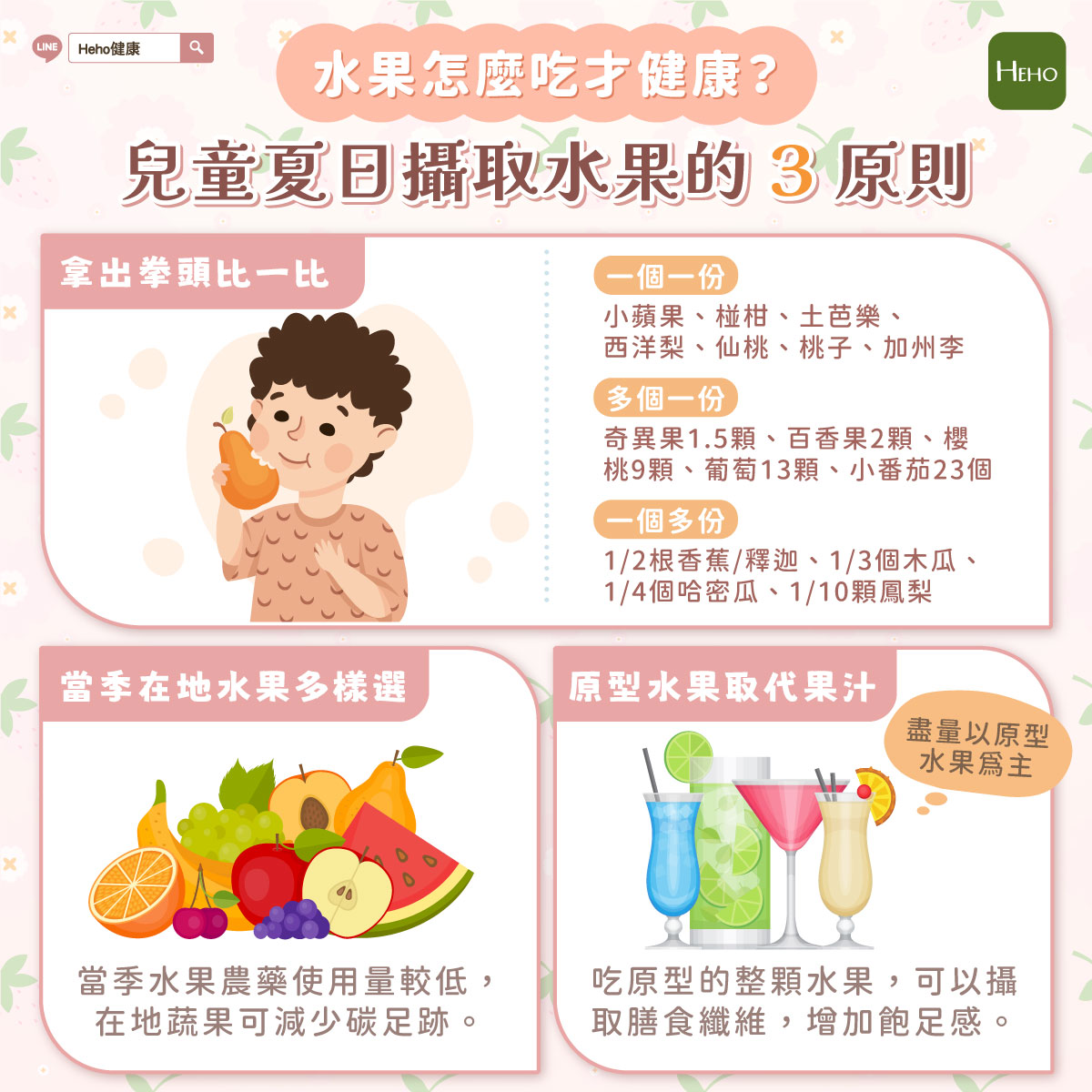As the summer season approaches and temperatures rise, many parents give their children fruits to cool down. While fruits are healthy and rich in micronutrients, it's important not to overconsume them for a balanced diet. Here are some guidelines for children's fruit intake.
Children's Fruit Intake
Use Your Fist for Portion Size The Health Promotion Administration recommends that children aged 1-6 consume two servings of fruit per day, and children aged 7-12 consume 2 to 3.5 servings based on their daily calorie needs. One serving of fruit is about the size of an adult woman's fist or a small bowl filled with fruit pieces. It's important to pay attention to portion sizes when preparing fruit for children.
Choosing seasonal fruits reduces pesticide usage. (Photo/Source: Flicker)
One Piece Equals One Serving:
- Small apple, mandarin, guava, pear, peach, California plum
Multiple Pieces Equal One Serving:
- 5 kiwis, 2 passion fruits, 2 jujubes, 13 cherries, 13 grapes, 23 cherry tomatoes
One Piece Equals Multiple Servings:
- 1/2 banana or sugar apple, 1/3 papaya, 1/4 cantaloupe, 1/10 pineapple
Choose a Variety of Seasonal Local Fruits
Selecting seasonal fruits that are locally grown reduces pesticide use and lowers carbon footprints. For example, fruits in season during May and June include bananas, pineapples, starfruit, mangoes, wax apples, loquats, and watermelons. Choosing seasonal local fruits ensures the best taste and nutrition and supports environmental sustainability.

Encourage children to eat whole, unprocessed fruits. (Photo/Source: Pexels)
Whole Fruits Over Juice
Encourage children to eat whole fruits to intake dietary fiber and increase satiety. While fruit juice comes from natural sources, it lacks fiber and can lead to excessive sugar intake quickly, increasing the risk of tooth decay and obesity.
Nutritional Concerns of Excessive Fruit Consumption in Children
Fruits contain natural sugars, which are not a concern in moderation. However, excessive long-term consumption can lead to obesity and tooth decay. If fruit consumption displaces regular meals, it can cause a deficiency in other essential nutrients necessary for children's growth. Therefore, parents should ensure children follow the "Three Vegetables and Two Fruits" guideline for healthy development.







